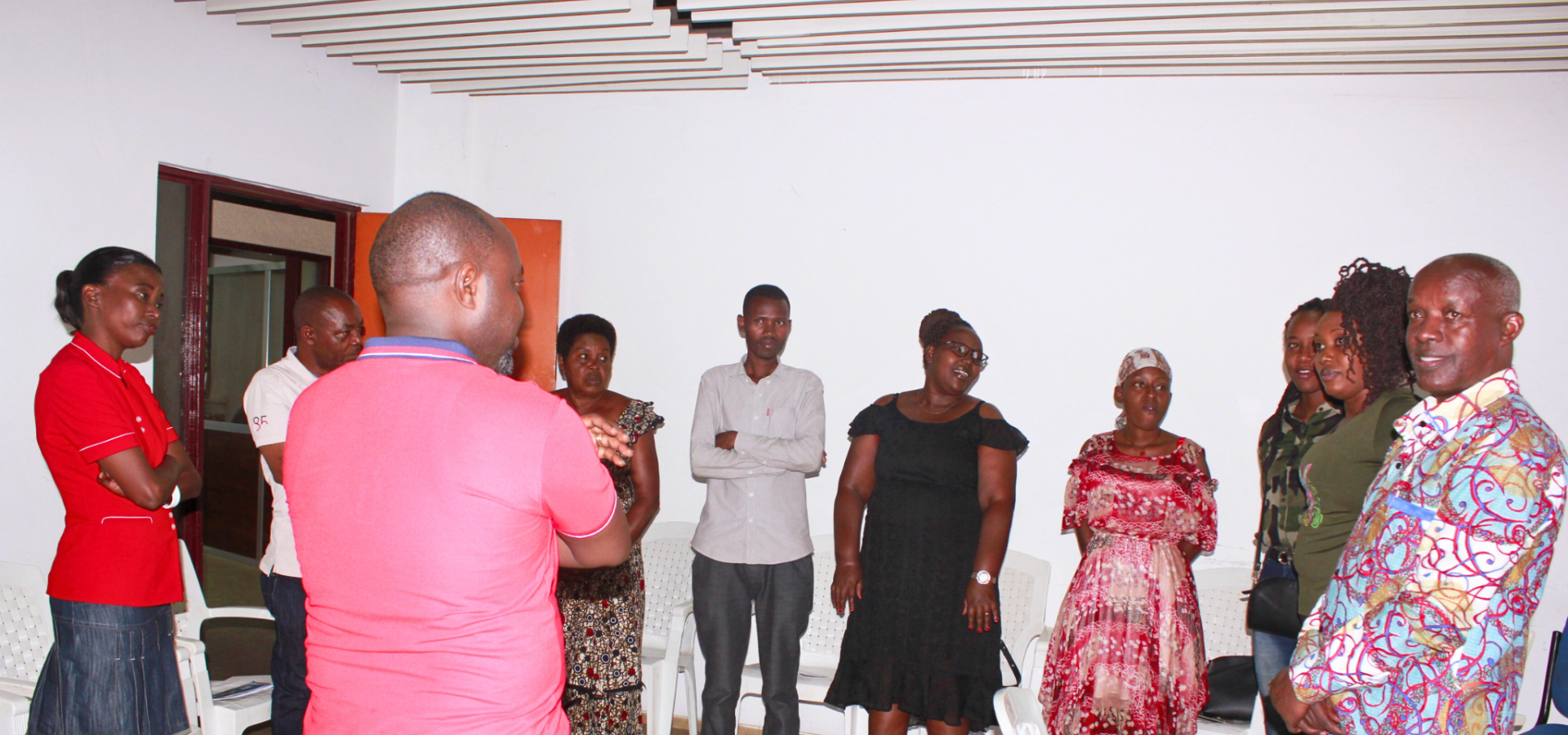Trustbuilding between different ethnic groups
The trustbuilding team in Burundi held a two-day workshop on the importance of honest conversations for reconciliation in the country.
by Polycarpe Kundabandi and Manon Michelle Monhemius
The trustbuilding team in Burundi aims to build trust and heal historical wounds between the communities affected by the ethnopolitical divisions following the politico-ethnic conflicts that have bereaved the Burundians since the country's independence.
On 29 and 30 March, the team held a two-day workshop on the importance of honest conversations for reconciliation in Burundi. The sessions carried the theme "A sincere dialogue: Victims listening to other victims - a contagious healing". The 22 participants represented members of various Associations of the Victims of the Crisis in Burundi.
The facilitator of the workshop, Priest Dieudonné Niyibizi, shared that any society affected by wounds of the past is mainly built by victims that have healed. He then encouraged the participants to forgive unconditionally to free themselves and their executioners. 'It is hard for the executioners to take the first step to ask for forgiveness because they believe that, once they accepted that they have killed people, they should therefore be arrested or killed by the survivors.'

During a moment of sharing during the workshops, Chandelle, a participant, shared her painful past.
'I was born in 1999 in a camp for displaced people from Bugendana. The effects of the killing of the democratically elected president and the mass killing that has followed have affected me personally. The violence has been cyclical, with each ethnic group seeking revenge on the other at all costs, thus making the violence perpetual. Members of all ethnic groups have been killing each other. I grew up surrounded by only people from my ethnic group, all survivors of the massacres of Bugendana, where many people died. Because we are mono-ethnic in the camp, we share the same narrative of what happened to my community and the country. Those who are not from my ethnic group and stayed in the villages are demonised, judged inhumane and held responsible for all the misfortune that has befallen us. I have never been exposed to another narrative because I grew up in this environment of people from one ethnicity with much social and psychological trauma. In consequence, they still consider all villagers as executioners. After attending this workshop, I understood how important forgiveness is and how important it is to open our hearts and cultivate inner peace to allow us to be no longer afraid of “others” and start good relationships with them. Now I feel transformed and know we are not the only ones who suffered from the past violence.'

The facilitator, through a screened movie on truth and reconciliation, urged participants:
- To go beyond the memories of the past and listen to what happened to other people from different ethnic groups.
- To tell the truth, as only the truth will bring genuine reconciliation in Burundi.
- To forgive unconditionally.
- To let go of the past that has taken the people hostage.
'Not listening to others who suffered is to minimise their suffering. It is a sign that you are still suffering', emphasised the facilitator.
During the group work, participants worked on lowering the barriers preventing them from trusting others: overvaluation of the past, ignorance, spirit of revenge, prohibition of commemorative activities, self-confinement and passive listening. To lift those barriers, participants engage themselves to free others by adopting a culture of non-violent communication, forgiveness, accepting each other's past, overcoming the fear of others, creating a space of honest conversation with the victims and active listening.
'Participants shared their life stories and adopted concrete actions to build trust. They increased their understanding of the impact of the wounds of the past and that only the truth can heal these. Inter-Burundian trust is the central pillar of reconciliation in Burundi.' Marc Bukuru, Project Manager TBP Burundi
